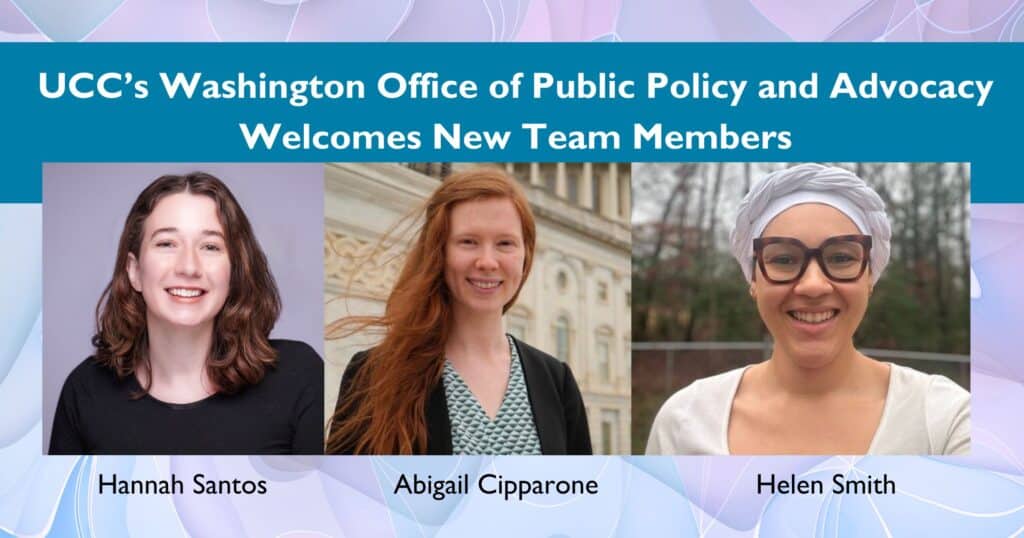Book celebrating history of American Missionary Association released at Synod
And while Perry County today is home to only two cities and just over 12,000 citizens, the Rev. Andrew Young, former U.S. ambassador to the United Nations and long time member of First Congregational UCC in Atlanta, says it is easy to identify why a small, rural county like Perry has produced so many of academia’s elite over the years.
“This astounding fact is due to a single American Missionary Association (AMA) school – Lincoln Academy in Marion, Ala. – and the extraordinary community that gave life to it and to which it gave life abundant,” Young writes in the foreword of a book entitled “On the Heels of Freedom.”
The book, written by Associate Southeast Conference Minister Joyce Hollyday, and a documentation of the history of the AMA since its creation in 1846 – including its founding of over 500 schools in the American South for newly emancipated slaves following the Civil War – is being released this week at General Synod.
Copies of the book are on sale across from the registration tables, and a special book signing and reception will be held Sunday night after the community worship in room 316A of the Georgia World Congress Center.
With the final generation of students who attended many of those original AMA-founded schools before they were turned over to public agencies entering their twilight years, Hollyday said publishing their stories and histories was essential.
“We knew that their stories would die with them if we didn’t make the concerted effort to collect them,” she said.
The book details over 160 years of history, Hollyday said, beginning with the mutiny on the slave ship Amistad and the Congregationalists who came to the legal aid of the African slaves who were being shipped to the United States from Cuba. It was from those early beginnings that the AMA was born.
“This is the story of the effort to build schools for emancipated slaves,” Hollyday said. “It was a very valiant effort on the part of mostly women who were teachers and who left New England to start these schools in barns or churches or wherever they could. But this is also the story of the persistence of the students to get an education. Being able to get an education was huge after emancipation and people made great sacrifices to be able to do it.”
As Hollyday relates in her book, sustaining these educational enterprises was not an easy task in the face of the overwhelming hostility and opposition that came from almost everyone in the South.
The first branch of the Ku Klux Klan was founded in 1868 in Tennessee with the express purpose of shutting down African American schools. Many of the original schools were burned down and both teachers and students were lynched and ostracized.
“It was very much a courageous effort,” Hollyday said. “People risked their lives to do this. It was a real mutual courageous effort on the part of both the teachers and the students.”
Hollyday said New York-based Crossroads Publishing sped up the release of the book to coincide with Synod, which is being hosted by the Southeast Conference for the first time.
“We in the Southeast Conference are very aware that the AMA story is a wonderful part of the history of our Conference and it is something that we want to celebrate,” said Hollyday, who was assisted in the gathering of the stories by Susan Mitchell, co-pastor of Sankofa UCC in Atlanta and Milton Hurst, pastor of First Congregational UCC in Talladega, Ala. “As we have the whole Church coming to be in our neighborhood so to speak, it is very exciting to be able to uplift these stories and celebrate this wonderful legacy.”
Significant portions of the General Synod gathering have been dedicated to celebrating the historical commitment to justice of both the Southeast Conference and the whole UCC, a commitment embodied by the Church’s AMA forerunners, Hollyday said.
“It is critical that these stories be kept alive because they inspire those of us who are working for justice and freedom in our time,” she said. “Knowing of the courage and the creativity of those who were involved in this effort back in the 19th century and how that carried on into the Civil Rights Movement can still inspire us today to think of how we can be courageous and how we can apply our faith in the world today.”
Categories:
United Church of Christ News
Related News
Poor People’s Campaign Moral March takes to the streets of Washington, D.C.
The Poor People's Campaign Moral March was held in Washington, D.C. on June 29, attended by...
Read MoreUCC’s director of CARDD receives national award for research
The United Church of Christ’s Erica Dollhopf, director of The Center for Analytics, Research...
Read MoreThree new staffers join UCC Washington, D.C. office
The United Church of Christ’s Washington, D.C. Office of Public Policy and Advocacy recently...
Read More

